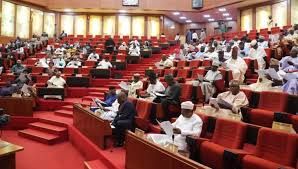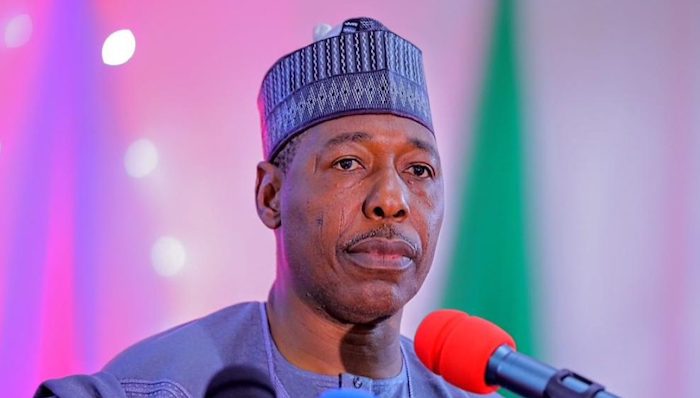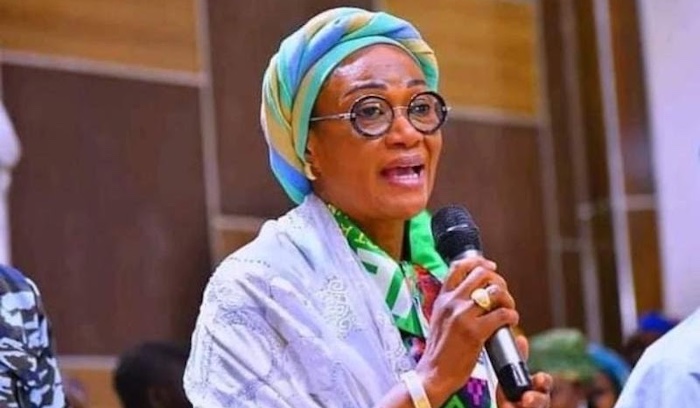

Entrepreneur Ada Osakwe has warned that Nigeria’s food insecurity crisis has reached an alarming stage, arguing that the country should have declared a state of emergency ‘about ten years ago’ given the scale of hunger now projected by a new United Nations report.
Speaking in an interview with ARISE News on Saturday, Osakwe said the latest UN early-warning analysis—which predicts that 34 million Nigerians could face critical food insecurity during the June–August 2026 lean season must spur far more urgent, scaled-up action across farming, infrastructure and nutrition.
“Absolutely. I think we should have been declaring a state of emergency maybe ten years ago,”she said. “As the UN highlighted, at least the government now has sufficient early warning signals. Investments continue to go into the sector to provide farmers with the inputs they require, but we know that a lot more needs to be done.”
Osakwe stressed that the single biggest priority is large-scale infrastructure, especially irrigation, storage and processing systems.
“The first thing, I would say, is massive infrastructure investments in food,”she noted. “We need to ramp up irrigation so that even during the drought season we have sufficient water to plant and harvest properly. Inputs still need to be provided so that we can raise our yields in a significant way.”
She added that food security must go beyond availability to nutrition:
“It’s not just about having food; it needs to be nutritious. We still have some of the highest rates of malnutrition in Africa. Over 50% of children are stunted or wasted, especially in northern Nigeria. The right nutrients and micronutrients need to be given to mothers and children so they can develop properly.”
Osakwe said Nigeria would remain food-insecure “if we keep spending billions importing food we should be growing locally.”
She emphasised that better cold-storage and logistics infrastructure could drastically reduce the country’s post-harvest losses—currently up to 60% in fruits and vegetables.
“If we just put conditioned warehouses in areas of high food production, and have conditioned trucks that move produce from the farm to the market or to Mile 12, it changes the game,” she said. “This work needs to be quicker, faster and at a larger scale.”
Osakwe praised government efforts to revive and operationalise strategic grain reserves through private-sector partnerships, but insisted far more must be done.
She argued that the private sector remains central to transforming agriculture into a profitable industry.
“The private sector continues to play the role of a solid implementer,”she explained. “It wants to see profit, so it has an obligation to ensure things work. There’s still a lot of money in the system, but the private sector needs to be convinced that agriculture is a place to put money.”
Osakwe pointed to the growing presence of agri-tech companies, banks setting up agriculture desks and increasing investment in agro-processing and export-oriented businesses.
“It’s not a charity project,” she stressed. “The money is there, but we need to show the bankability and profitability of business models in agriculture.”
Reflecting on progress over the past decade, Osakwe said Nigeria has made gains but still faces huge gaps.
“There has been progress from when I worked in the Ministry of Agriculture ten years ago. We’ve seen more entrepreneurs, more bankable models, and more funding for agro-processors—including women-owned businesses,”she said. “But we need to do more. There is still room for improvement.”
She called for more support for young entrepreneurs in meeting export certification requirements, arguing that such barriers limit Nigeria’s global competitiveness.
On the impact of climate change, Osakwe said early-warning systems and the federal government’s increased focus on sustainability are critical, but Nigerians must also look inward for resilient crops and solutions.
“Some of our indigenous crops like acha and fonio are drought-resistant and climate-tolerant,”she said. “We use them at Nuli, sourcing from Jos for all our restaurants, including our new one in the US. Sometimes it’s not about looking outside for solutions—we have them right here.”
Osakwe said scaling such local solutions could strengthen both food security and climate resilience.
Boluwatife Enome



